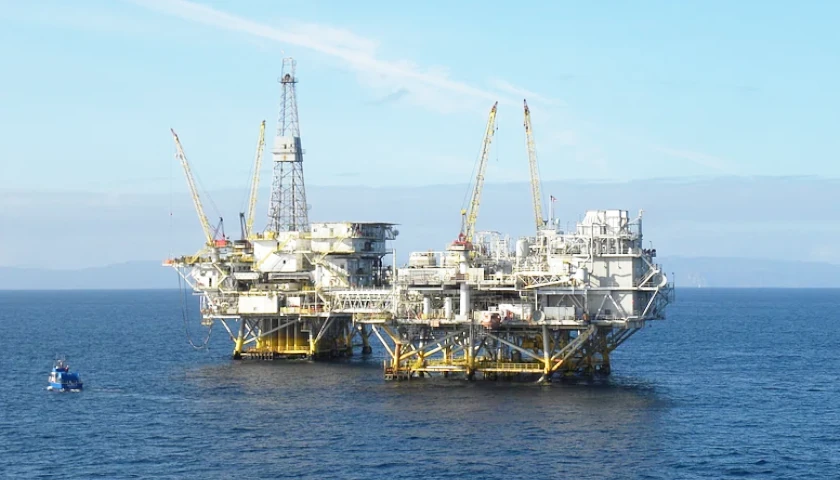by Kevin Killough
Alaska Natives are fighting back against the Biden administration’s decision to shut down oil and gas development in northern Alaska, which they say is vital to the prosperity and well being of their communities.
The Voice of the Arctic Iñupiat (VOICE), a nonprofit advocacy group for Native-American communities living on the state’s North Slope, filed a lawsuit Monday against the Bureau of Land Management (BLM) and Interior Secretary Deb Haaland over the final BLM’s final rule blocking 13 million acres in their region to oil and gas development.
The lawsuit argues that the rule goes against the Congressional intent of the National Petroleum Reserve-Alaska (NPR-A), which was to increase domestic supplies of oil.
“For over 40 years BLM managed the NPR-A consistent with these Congressional directives, in regular consultation with local stakeholders, and successfully balanced the NPR-A’s primary purpose of furthering oil and gas exploration and development with appropriate conservation and protection measures. Not anymore,” the complaint states.
The lawsuit accuses the BLM of enacting the final rule without any meaningful engagement with the North Slope Iñupiat, despite unanimous opposition from the elected leaders of the communities.
“Our complaint speaks for the North Slope Iñupiat’s voices whom the federal government has chosen to silence, stonewall, and scorn since it blindsided us with its unilateral mandates in September 2023,” said VOICE President Nagruk Harcharek.
The NPR-A is part of ancestral Iñupiat homelands. The reserve is located entirely within the North Slope Borough (NSB), a home-rule government created so that the communities would have a say and benefit from responsible development in the region. The NSB has the authority to tax infrastructure on the North Slope, which provides more than 95% of the communities’ tax revenues.
The decision, according to the complaint, blocks the communities from a vital source of tax revenue that’s contributed to improvements in the quality of life for the NSB. In 1980, the average life expectancy of a person living in the NSB was just 65, which is about the same as Sudan and Iraq today. Today, the average lifespan in the North Slope is about 77 years.
The tax revenues from Alaska’s oil and gas industry have, according to the VOICE’s lawsuit, provided essential public services, including sewer, water, heat, sanitation, schools, clinics, hospitals, wildlife and fisheries management and research, infrastructure, and social and cultural programs. This is in addition to providing jobs and other economic benefits.
Kate Wolgemuth, program and government affairs manager for VOICE, told Just the News the “elders” of these communities lived much harder lives before this infrastructure was constructed. For example, there are no trees in the arctic tundra, so they had to gather driftwood from the coast, which was a key source of heat. They also had to put out their “honey buckets.” These were five-gallon buckets that served as the household toilet.
“I don’t think anybody wants to go back to before any of these modern amenities existed. Resources, including time, can be dedicated elsewhere when you don’t have to worry about more rudimentary ways of modern amenities,” Wolgemuth said.
The lawsuit comes on the heels of the Supreme Court decision shooting down the “Chevron deference,” which gave wide latitude to federal agencies to make impacting rules where federal law was vague. The high court’s ruling is expected to result in many lawsuits, such as that filed by VOICE, as now judges will be interpreting the law as written by Congress.
Rick Whitbeck, Alaska policy director for Power The Future, an energy advocacy group, told Just the News that the Iñupiat have lived in the region for thousands of years and stewarded those lands well. He said he hopes the courts will allow the Alaskan Natives to plot the best course of action for their people, their culture and their future.
“The announcement [of the lawsuit] is cause for both celebration and aggravation. Celebration because the leaders from the North Slope have stood up for their current and future generations and the opportunities that the NPR-A could provide them. Aggravation because they were forced to take this step due to administrative overreach and a general kowtowing by ‘Team Biden’ to a radical environmental lobby hell-bent on locking up Alaska’s potential,” Whitbeck said.
The Biden administration has claimed to be dedicated to engaging with Native American tribes in its rulemaking process, but the final rule on the NPR-A disregarded input from the Iñpiat, Wolgemuth said. Members of the VOICE had tried for years to get an audience with Haaland to discuss the impacts of the BLM rules, only to have the requests repeatedly declined. Last month, representatives of VOICE were finally granted a meeting with her.
Wolgemuth said that the unwillingness of the BLM to hear and address their concerns factored into their decision to file the lawsuit. “Our last chance to weigh in or influence anything on this NPR-A rule is the judicial branch. Unfortunately, because of the lack of engagement on the executive side, this is the avenue through which we’ve had to turn,” she said.
– – –
Kevin Killough is a reporter for Just the News.




